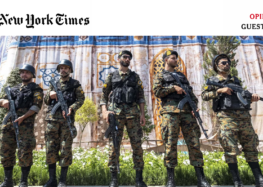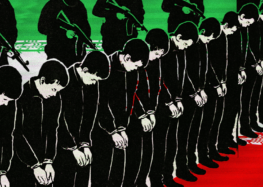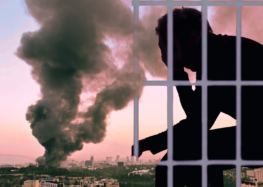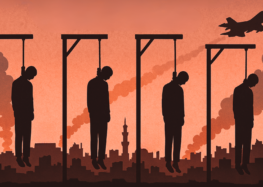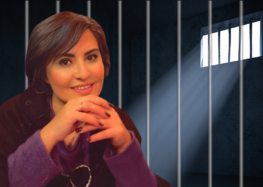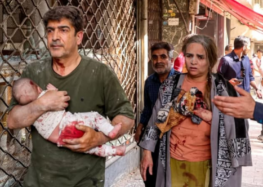Illegal Arrest, Prison Abuse, And Unfair Trial– Latest News on Heshmatollah Tabarzadi from His Lawyer
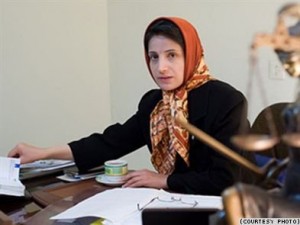
Four months after his arrest, political activist Heshmatollah Tabarzadi remains in solitary confinement cells of Ward 209 of Evin prison. According to his lawyer, his initial court session, which met for the first time last Wednesday was supposed to be today but was postponed again. His lawyer, Nasrin Sotoudeh, told the International Campaign for Human Rights in Iran that her client's interrogations have been done with "pressure, beatings, repeated and indescribable verbal insults."
Four months after his arrest, political activist Heshmatollah Tabarzadi remains in solitary confinement cells of Ward 209 of Evin Prison. According to his lawyer, his initial court session, which met for the first time last Wednesday was supposed to be today but was postponed again.
His lawyer, Nasrin Sotoudeh, told the International Campaign for Human Rights in Iran that her client’s interrogations have been done with “pressure, beatings, repeated and indescribable verbal insults.” Sotoudeh believes that whatever confessions are made under such circumstances are “completely illegal.” Sotoudeh also believes that her client’s arrest was illegal.
She told the International Campaign for Human Rights in Iran: “My client, Mr. Tabarzadi was arrested on December 28, 2009, with a copy of a warrant which did not have his name on it. The law expressly says that a suspect’s name, reasons for his arrest, and his charges must be mentioned in a warrant. In his case, this was a general warrant issued by Tehran Prosecutor and his name was nowhere on that warrant. Therefore Mr. Tabarzadi’s arrest was an illegal arrest.”
Four charges are reflected in Heshmat Tabarzadi’s indictment: “Propagation activities against the regime,” “congregation and mutiny with the intention to act against the national security,” “insulting the Supreme Leader and the President,” and “disrupting public order.”
Regarding her client’s court process Sotoudeh said: “According to Article 168 of Iranian Constitution, ‘political and press offenses will be tried openly and in the presence of a jury, in courts of justice.’ But my client has so far only been interrogated by the Ministry of Intelligence and according to him, his interrogations have been done through pressure and beatings.”
Tabarzadi’s most important grievance is the actions of an intelligence officer who has made certain “recommendations” to the judge. Sotoudeh calls this action “astonishing,” and added, “In an illegal move, this Ministry of Intelligence officer has made a recommendation to the case judge to consider maximum punishment with exile to locations with a bad climate, as well as deprivation of all manners of political, social, and cultural activities for the rest of my client’s life.”
“Let’s assume that this individual had no legal knowledge. This action is a crime according to law, as a non-judicial agent has made a recommendation to the judge. This individual has no judicial positions, and he is neither a judge nor a party to this case. Such an action has taken place in many cases and unfortunately we have observed that the judge has not only accepted the recommendations, he has taken further steps to issue an even heavier sentence than the one the Ministry of Intelligence had requested. It must be noted that the principle of judicial independence necessitates the judges to react in the face of such recommendations, not to accept them and issue heavy sentences accordingly.”
According to Heshmat Tabarzadi’s lawyer, he has been repeatedly questioned about his participation in the protests. Nasrin Sotoudeh told the International Campaign for Human Rights in Iran: “He stated that he did not participate in any protests, but only went on a drive through the city in his car. But his more important defense is that even if he had participated in the protests, he did not have a problem. It is the legal right of Iranian nation and it was also his legal right. He should be able to express his protest through peaceful means. His entire defense during the illegal interrogations has been that he had used his legal rights for civil and peaceful protest.”
Background:
Heshmatollah Tabarzadi is Secretary of Iran Democratic Front and an old-time political and student activist. He has spent more than nine years in prison for his activities. Tabarzadi was Editor-in-Chief of “Payam Daneshjoo,” “Neda-ye Daneshjoo,” “Hoviat-e Kheesh,” and “Gozaresh’e Rooz” publications. This political activist is regarded as a main figure of student protests of 1999.

